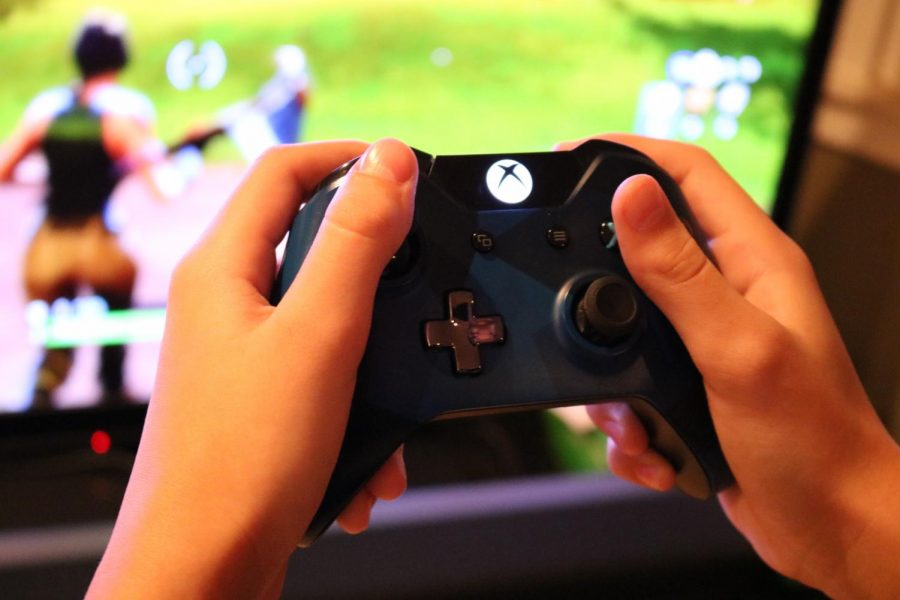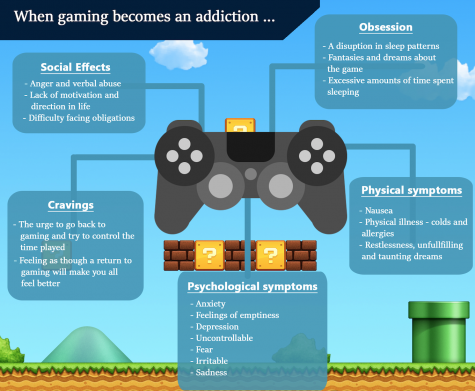Video game addiction plagues teens
January 9, 2018
One more minute.
Teens love video games, sometimes to the point where it is difficult just to put the controller down, and it affects other aspects of daily life.
While video game addiction is something that can happen to all age groups, teenagers are especially at risk.
Michelle Gossett is a therapist who works with people of all ages with many types of addictions, including video games.
“Because the brain isn’t fully developed until 25, teens are more likely to fall victim to it,” Gosset says. “I see it in a lot in teens.”
Almost all teens have played video games before, and it has become a passion for many students at ETHS.
These games are so addicting because some video games are specifically designed to trigger the same chemicals in your brain that drugs do, making them addictive.
The type of game a person plays can also influence whether or not they become addicted. Games that have micro-transactions (in-game items that you can use real money to buy) are especially addictive.
“Micro-transactions are like gambling. Behaviors that become repetitive almost,” Gossett says.
Micro-transactions make the brain produce dopamine, the same chemical that leads to addition.
There is a difference between loving to play the video games, and actually being addicted.
Like anything in life, video games need to be played in moderation and balanced with other activities.
“Moderation is key,” Gossett says. At the end of the day, video games are fun and a perfectly healthy form of entertainment.
Gossett recommends that people take breaks every 15-30 minutes of playing video games, as our brains become “saturated” in them after 45 minutes.
“I play for a long time,” one freshman boys says, “But I’m usually perfectly willing to stop.”
It’s difficult to identify video game addiction because it’s not classified as a disorder.
Gossett notes that warning signs of a teen being addicted are not so different from other types of addictions. They include not being interested in other activities they enjoy, their grades, friendships, and hygiene suffering.
“Not very often is it just, ‘Hey, I’m addicted to video games.’ Usually, it’s complemented by anxiety and other challenges,” Gossett adds.
The odds of becoming addicted to anything, including video games, vary from person to person.
“Everyone has a threshold for addiction. One person might be biologically predisposed, and some people can delay their impulse,” Gossett says.
Gossett recommends trying new activities if you think too much of your time may be devoted to video games. If you believe you may be suffering from any kind of addiction, visit addictionrecov.org and psychguides.com.
So if you find it hard to put the controller down, and find video games to be the only positive thing in your life, you may be addicted.
Video game addiction is a relatively new and roughly-defined issue, as video games have become increasingly mainstream in the last decade. But it’s never too late to get help, from therapists and psychiatrists like Gossett, if you think you may be addicted.
If you can balance your time playing video games, it’s okay to keep playing for one more minute.









